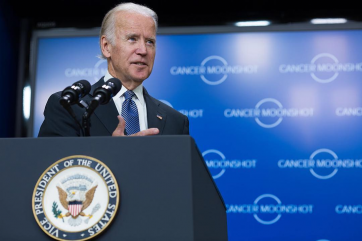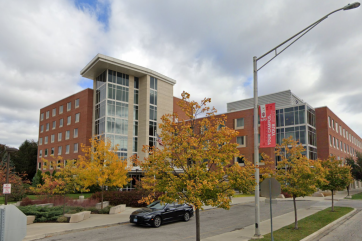HIV 'Cure' News: 3-Year-Old in Mississippi is First Documented Case of Virus Entering Remission
By Russell WesterholmIn the case of a three-year-old girl from Mississippi, doctors may have a clue to curing HIV by using aggressive treatment early on, HealthDay News reported.
Her doctors reported she began the treatment right after her birth and that she is currently free of the virus. The treatment consisted of strong antiretroviral drugs that apparently prevented the virus from establishing itself in her system.
In a study published Thursday in the New England Journal of Medicine, Dr. Katherine Luzuriaga and her colleagues said the girl had stopped taking HIV medication at 18 months old, but has not had an active trace of the virus since. Still, they are hesitant to declare her fully cured, as there are still faint signs - possibly false positives or vague residue of the virus - in her blood stream.
The researchers fear HIV could act like cancer by hanging around in one's system and potentially reappearing.
"If they are remnants, the question is whether they are capable of reigniting," the University of Massachusetts Medical School's Luzuriaga said. "For that reason, we are calling this a remission because we want to follow the baby over a longer period of time to see if the child continues to control the virus without rebound."
The girl's significance is still huge, despite not being declared fully healed. Hers is the first documented instance of HIV being fought into remission.
According to the study, Dr. Hannah Gay, of the University of Mississippi Medical Center, the girl's pediatrician, began the treatment just 30 hours after birth. It may not have been planned that way, though.
Luzuriaga said pregnant women with HIV are usually but on antiretroviral medication before giving birth and, if the newborn tests positive, the treatment continues. In this girl's case, no one know knew the mother had HIV, so when her doctors found out the baby was infected, Gay began the treatment immediately. The study noted this timing likely had an influential affect.
Gay used a combination of three antiretroviral drugs normally used on infected infants and at the according dosage. The doctors kept up the treatment until the girl was 18 months old, but the timing of the start of the treatment most likely stopped the virus from building a defense against the drugs.
"What studies in other babies have shown us is if you treat very early, you're not only able to treat the viral replication but also able to limit the number of cells in which HIV integrates itself into the host genes," Luzuriaga said. "Basically, HIV makes copies of DNA and that DNA integrates itself into host genes. That's the barrier to cure. As long as you have those white blood cells floating around the body that have HIV stitched into the host DNA, the patient is not cured."








